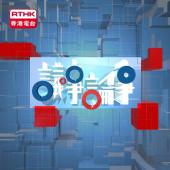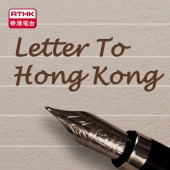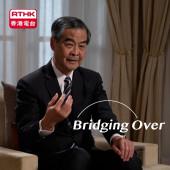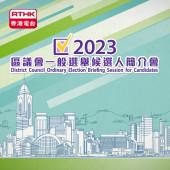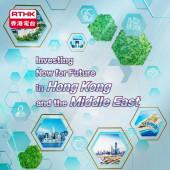 載入中 ...
載入中 ...
返回
Legislator Ted Hui
2018-07-29
Hong Kong is known to be a melting pot - claiming to be “Asia’s World City”. It has been a very attractive place to work and live in for foreign workers around the world. Apart from being one of Asia’s strongest economic hubs, Hong Kong’s landscapes which are generally less than an hour travel from the city center is one of the main reasons why “expats” choose and strive in order to live here.
According to a thematic report released by the Census and Statistics Department earlier this year, the amount of non-Chinese ethnic people living in the city has increased by 70.8 percent as a comparison from a decade ago. Not considering foreign domestic helpers, the number of minorities has increased 70 percent during this time range. This massive rise contributed more to the richness of this city’s cultural diversity.
They say if you can make it in Hong Kong, you can actually make it anywhere. Considering the city’s very competitive mindset, long working hours and fast-paced environment - this is a place where a person could fully professionally develop. It is survival of the fittest for the greatest minds not only in Asia but the whole global scene. Nevertheless, is this “survival of the fittest” image still pertains to a competition between great, innovative and global minds? Or is it starting to shift to survival of the fittest in terms of quality of life as well?
At the present time, we could only imagine the challenges these expats are facing since we, Hong Kong locals highly experience them too. The significant demonstration of Hong Kong’s eroding freedom which is evidently reported every day in different media platforms, the city’s lack of pedestrian-friendly zones, the high-density housing and cramped living conditions and the environment problems of Hong Kong are some of the main factors that are confronting both us and our city’s expats.
All these concerns are equally causing high degree of alarm, but today, I would like to highlight our city’s environmental degradation. Let me start with tackling a very unique type of pollution we have in Hong Kong - light pollution. Do you ever wonder why you rarely see stars when you look at the city’s sky? Apart from our enormous skyscrapers, light pollution hugely contributes to this scenario. Hong Kong is well-known to have one of the brightest downtowns - we could say that this city seems to really never sleep.
According to a Hong Kong University study, the city’s light pollution may actually be the ‘worst in the world’ - measuring 1,000 times brighter than international norms. It is not only filtering our natural sky, it also negatively affects our whole ecosystem. From animals experiencing complications while migrating or laying eggs due to too much bright lights at night to humans struggling to have a complete good night sleep without the presence of complete darkness. Though this type of pollution may not be as rampant as the others yet, are we going to wait until it starts rapidly affecting us and starts driving expats away?
On the other hand, the seriousness of air pollution here in Hong Kong is not news. It is especially bad in summer before a typhoon - the air circulation is non-existent because there is no wind, and as a result, the pollutants from power plants, vehicles and marine vessels etc. all gather to form the toxic air which we in turn breathe in. Needless to say, these pollutants can cause an array of side effects and have been linked to premature deaths. Are we going to do something about it such as promoting the use of electric cars and opening Hong Kong to more cycling lanes or do we just accept that we are doomed to have polluted air, risk our health and eventually drive expats away?
Another pollution that has drawn my attention recently is plastic. Although the severity of the issue in Hong Kong might not have reached an alarming level yet to drive away foreign workers, it is definitely an issue that needs to be addressed. Living in a fast-paced city, locals and expats alike are all pressed for time, hence the “throwaway culture” - we use plastic takeaway containers, plastic cutleries, plastic straws because they save us time, save us effort of washing, and when they’re thrown into the bin, they’re out of sight out of mind.
However, that is just not the case. They do linger, and come back to haunt us. Hong Kong’s waters is not immune from the plastic pollution that is plaguing the waters and endangering the lives of animals all over the world. I have been to beaches in Hong Kong where when I looked closely, there were small broken down plastic molecules mixed with the sand. Even the Victoria Harbour we are so proud of, also has rubbish gathered in the water near the piers. Not only is it an eyesore, our actions have polluted the water, increase the burden of landfill, and endanger the lives of sea animals.
In comparison, the international community has taken more drastic steps to address this issue, in part thanks to the horrifying videos of straws being stuck in a turtle’s nose, rubbish -and mostly plastic- clogging up rivers and being washed ashore of beaches. For example, Seattle became the first major US city to ban drinking straws on the 1st July this year, a move environmental groups are keen to see Hong Kong follow suit. There have also been talks of banning other single-use plastic products like cotton buds, plastic cutleries, and drink stirrers in the EU, and in replacement, they will have to be made exclusively from more sustainable materials.
I am really keen to seeing this awareness grow amongst us in Hong Kong. It is only when it continues to be in our conversation, will the government get the message that putting forward measures to cut our single-plastic consumption is what the public wants. But until then, people living in Hong Kong need to take the first step by reducing the use of single-used plastics from the source. Start small, say no to plastic straws, dine in instead of ordering takeaway and save the plastic bag, containers and cutleries! In light of the issue, my team and I are going to survey a sector of around 280 restaurants within my district area. We are going to try and approach each restaurant one by one and discover the kind of single-use plastic reduction measures they have already taken. Through this method of engagement, we hope we can highlight the severity of the issue to the restaurants and encourage them to play a part in reducing the number of single-use plastics they use daily.
Given these environmental challenges “Asia’s World City” is facing, it would not be a surprise if these would affect or are already negatively affecting our attractiveness to current and potential foreign workers. Making Hong Kong’s environment pleasant is definitely not an easy task. It requires a huge amount of understanding and cooperation from both local and foreign residents residing in this city. At the end of the day - we do not want to drive away expats - moreover, we do not want to drive away our own.
According to a thematic report released by the Census and Statistics Department earlier this year, the amount of non-Chinese ethnic people living in the city has increased by 70.8 percent as a comparison from a decade ago. Not considering foreign domestic helpers, the number of minorities has increased 70 percent during this time range. This massive rise contributed more to the richness of this city’s cultural diversity.
They say if you can make it in Hong Kong, you can actually make it anywhere. Considering the city’s very competitive mindset, long working hours and fast-paced environment - this is a place where a person could fully professionally develop. It is survival of the fittest for the greatest minds not only in Asia but the whole global scene. Nevertheless, is this “survival of the fittest” image still pertains to a competition between great, innovative and global minds? Or is it starting to shift to survival of the fittest in terms of quality of life as well?
At the present time, we could only imagine the challenges these expats are facing since we, Hong Kong locals highly experience them too. The significant demonstration of Hong Kong’s eroding freedom which is evidently reported every day in different media platforms, the city’s lack of pedestrian-friendly zones, the high-density housing and cramped living conditions and the environment problems of Hong Kong are some of the main factors that are confronting both us and our city’s expats.
All these concerns are equally causing high degree of alarm, but today, I would like to highlight our city’s environmental degradation. Let me start with tackling a very unique type of pollution we have in Hong Kong - light pollution. Do you ever wonder why you rarely see stars when you look at the city’s sky? Apart from our enormous skyscrapers, light pollution hugely contributes to this scenario. Hong Kong is well-known to have one of the brightest downtowns - we could say that this city seems to really never sleep.
According to a Hong Kong University study, the city’s light pollution may actually be the ‘worst in the world’ - measuring 1,000 times brighter than international norms. It is not only filtering our natural sky, it also negatively affects our whole ecosystem. From animals experiencing complications while migrating or laying eggs due to too much bright lights at night to humans struggling to have a complete good night sleep without the presence of complete darkness. Though this type of pollution may not be as rampant as the others yet, are we going to wait until it starts rapidly affecting us and starts driving expats away?
On the other hand, the seriousness of air pollution here in Hong Kong is not news. It is especially bad in summer before a typhoon - the air circulation is non-existent because there is no wind, and as a result, the pollutants from power plants, vehicles and marine vessels etc. all gather to form the toxic air which we in turn breathe in. Needless to say, these pollutants can cause an array of side effects and have been linked to premature deaths. Are we going to do something about it such as promoting the use of electric cars and opening Hong Kong to more cycling lanes or do we just accept that we are doomed to have polluted air, risk our health and eventually drive expats away?
Another pollution that has drawn my attention recently is plastic. Although the severity of the issue in Hong Kong might not have reached an alarming level yet to drive away foreign workers, it is definitely an issue that needs to be addressed. Living in a fast-paced city, locals and expats alike are all pressed for time, hence the “throwaway culture” - we use plastic takeaway containers, plastic cutleries, plastic straws because they save us time, save us effort of washing, and when they’re thrown into the bin, they’re out of sight out of mind.
However, that is just not the case. They do linger, and come back to haunt us. Hong Kong’s waters is not immune from the plastic pollution that is plaguing the waters and endangering the lives of animals all over the world. I have been to beaches in Hong Kong where when I looked closely, there were small broken down plastic molecules mixed with the sand. Even the Victoria Harbour we are so proud of, also has rubbish gathered in the water near the piers. Not only is it an eyesore, our actions have polluted the water, increase the burden of landfill, and endanger the lives of sea animals.
In comparison, the international community has taken more drastic steps to address this issue, in part thanks to the horrifying videos of straws being stuck in a turtle’s nose, rubbish -and mostly plastic- clogging up rivers and being washed ashore of beaches. For example, Seattle became the first major US city to ban drinking straws on the 1st July this year, a move environmental groups are keen to see Hong Kong follow suit. There have also been talks of banning other single-use plastic products like cotton buds, plastic cutleries, and drink stirrers in the EU, and in replacement, they will have to be made exclusively from more sustainable materials.
I am really keen to seeing this awareness grow amongst us in Hong Kong. It is only when it continues to be in our conversation, will the government get the message that putting forward measures to cut our single-plastic consumption is what the public wants. But until then, people living in Hong Kong need to take the first step by reducing the use of single-used plastics from the source. Start small, say no to plastic straws, dine in instead of ordering takeaway and save the plastic bag, containers and cutleries! In light of the issue, my team and I are going to survey a sector of around 280 restaurants within my district area. We are going to try and approach each restaurant one by one and discover the kind of single-use plastic reduction measures they have already taken. Through this method of engagement, we hope we can highlight the severity of the issue to the restaurants and encourage them to play a part in reducing the number of single-use plastics they use daily.
Given these environmental challenges “Asia’s World City” is facing, it would not be a surprise if these would affect or are already negatively affecting our attractiveness to current and potential foreign workers. Making Hong Kong’s environment pleasant is definitely not an easy task. It requires a huge amount of understanding and cooperation from both local and foreign residents residing in this city. At the end of the day - we do not want to drive away expats - moreover, we do not want to drive away our own.
Politicians and public figures from a range of backgrounds take turns to have their say on important matters of the day in this personal view programme.
Catch it live: Sunday 8:15am - 8:25am
Podcast: Updated weekly and available after broadcast.


